6TH ASIAN MONETARY POLICY FORUM

The 6th Asian Monetary Policy Forum (AMPF) will be held on 31 May 2019 at the MAS Building, Singapore. The forum brings together an exclusive group of high-level central bankers, academics and private sector analysts to share perspectives on pressing monetary policy issues in Asia. AMPF is organized under the auspices of ABFER, with support from the University of Chicago Booth School of Business, NUS Business School and Monetary Authority of Singapore (MAS). The AMPF will commence on 30 May 2019 with a joint dinner with ABFER.
Agenda
2019
Venue: Horizon Pavilion, Level 5, Shangri-La's Rasa Sentosa Resort, Singapore
"The International Monetary and Financial System in the face of Shifting Geopolitics"
2019
Venue: Penthouse, Level 30, Monetary Authority of Singapore
10 Shenton Way, MAS Building, Singapore 079117
"The Dollar Hegemon? Implications for Policy Makers"
Discussants:
Professor Ricardo Caballero, Ford International Professor of Economics, Massachusetts Institute of Technology
Dr Gian Maria Milesi-Ferretti, Deputy Director, Research Department, International Monetary Fund
Chair:
Professor Bernard Yeung, Dean and Stephen Riady Distinguished Professor in Finance and Strategic Management, National University of Singapore and President of ABFER
“The New Normal in Monetary Policy and Labour Markets”
Moderator:
Professor Steven J. Davis, William H. Abbott Distinguished Service Professor of International Business and Economics, University of Chicago Booth School of Business & Senior Fellow at the Hoover Institution, EXCO Member and Senior Fellow of ABFER
Professor Darrell Duffie, Dean Witter Distinguished Professor of Finance and the Graduate School of Business; Professor (by courtesy), Department of Economics, Senior Fellow of the Stanford Institute for Economic Policy Institute, and Senior Fellow (by courtesy) of the Hoover Institution, Stanford University and Senior Fellow of ABFER
“Digital Currencies, Faster Payments, and Disruption of the Financial System”
Professor Beatrice Weder di Mauro, President of Centre for Economic Policy Research (CEPR), Distinguished Fellow-in-residence, Emerging Markets Institute of INSEAD Singapore, Professor of Economics, Chair of Economic Policy and International Macroeconomics, University of Mainz, Germany and Senior Fellow of ABFER
“Cyptocurrencies’ Challenge to Central Banks”
Chair:
Professor Andrew Levin, Professor of Economics, Dartmouth College
Chronological Order of Speakers
-
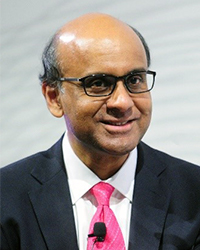
SM Tharman Shanmugaratnam
Senior Minister, Singapore and Chairman of the Monetary Authority of Singapore
Mr Tharman Shanmugaratnam was appointed Senior Minister on 1 May 2019. He is also Coordinating Minister for Social Policies, and advises the Prime Minister on economic policies. He is concurrently Chairman of the Monetary Authority of Singapore (MAS), Singapore’s central bank and financial regulator.
In addition to his responsibilities in the Government, he is Deputy Chairman of the Government of Singapore Investment Corporation (GIC) and chairs its Investment Strategies Committee. Tharman chairs the Group of Thirty, an independent global council of economic and financial leaders. He chaired the G20 Eminent Persons Group on Global Financial Governance which in Oct 2018 proposed reforms for a more effective system of global development finance and for financial stability. He earlier led the International Monetary and Financial Committee (IMFC), the key policy forum of the IMF, from 2011-2014; he was its first Asian chair.
Tharman has spent his working life in public service, in roles principally related to economic and social policies. He served as Deputy Prime Minister for eight years (from 2011). He also served as Coordinating Minister for Economic and Social Policies for four years (from 2015). Prior to that, he was Minister for Finance for eight years (from 2007), and Minister for Education for five years (from 2003). He has been Chairman, MAS since 2011. Tharman also chairs the Economic Development Board’s International Advisory Council, and the International Academic Advisory Panel that advises the Government on strategies for the university sector. -
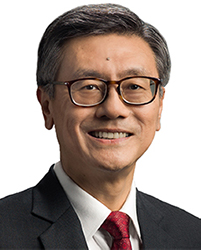
Professor Tan Eng Chye
President of National University of Singapore and Chairman of ABFER Council
Professor Tan Eng Chye was appointed President of the National University of Singapore (NUS) on 1 January 2018. He is the University’s 5th president, and the 23rd leader to head Singapore’s oldest higher education institution. Prof Tan, who attended Raffles Institution (1974 to 1979), obtained his Bachelor in Mathematics (First Class Honours, 1985) at NUS and his PhD (1989) and has held visiting positions at various universities overseas such as the Rutgers University, University of Washington at Seattle, University of California at Berkeley and University of Maryland, USA; Universities of Tokyo and Kyoto, Japan; as well as the Hong Kong University of Science and Technology. Prof Tan's research interests are in the Representation Theory of Lie Groups and Lie Algebras; and Invariant Theory and Algebraic Combinatorics. He has been invited to speak in numerous top conferences overseas, and has published more than 20 articles in top internationally-refereed journals and conference proceedings. He has co-authored three books on mathematics, including a well-known graduate text on non-Abelian harmonic analysis. Prof Tan is a passionate and award-winning educator. He was a pioneer architect of the current academic system in NUS, and has seeded many initiatives such as the Special Programme in Science, University Scholars Programme, University Town Residential College Programme, Grade-free Year, and Technology-enhanced Education. He was recognised with the University Teaching Award for Innovative Teaching in 1998, and was President of the Singapore Mathematical Society (2001 to 2005) as well as the South East Asian Mathematical Society (2004 to 2005). Prof Tan sits on the International Advisory Council of the Southern University of Science and Technology in China. He is a member of Singapore’s Future Economy Council, which is tasked with driving the growth and transformation of the country’s future economy. Prof Tan is on the boards of the Agency for Science, Technology and Research (A*STAR); National Research Foundation; and NUS High School of Mathematics and Science. He is a past board member of the Defence Science Organisation (DSO) Laboratories, National Institute of Education, and Infocomm Development Authority of Singapore. Prof Tan received the Public Administration Medal (Gold) at Singapore's National Day Awards in 2014 for his outstanding contributions to education. He was awarded the Wilbur Lucius Cross Medal, which honours exceptional alumni in the areas of scholarship, teaching, academic administration and public service, by Yale University in 2018. Prof Tan was also conferred an Honorary Doctor of Science from the University of Southampton in 2018 in recognition of his achievements as “an innovative and exceptional teacher, and then as a distinguished and respected leader in academia”.
-
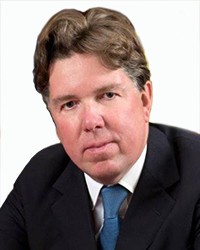
Sir Paul Tucker
Chair of the Systemic Risk Council, Senior Fellow at the Center for European Studies at Harvard University, and a research fellow at Harvard Kennedy School's Mossavar-Rahmani Center for Business and Government
Sir Paul Tucker is chair of the Systemic Risk Council, a fellow at Harvard Kennedy School, and author of Unelected Power: The Quest for Legitimacy in Central Banking and the Regulatory State (Princeton University Press, 2018).
His other activities include being a director at Swiss Re, President of the UK’s National Institute for Economic and Social Research, a senior fellow at the Harvard Center for European Studies, a member of the Advisory Board of the Yale Program on Financial Stability, and a Governor of the Ditchley Foundation.
Previously, he was Deputy Governor at the Bank of England, sitting on its monetary policy, financial stability, and prudential policy committees. Internationally, he was a member of the G20 Financial Stability Board, chairing its group on resolving too-big-to-fail groups; and a director of the Bank for International Settlements, chairing its Committee on Payment and Settlement Systems. -
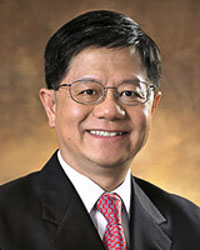
Professor Bernard Yeung
Dean and Stephen Riady Distinguished Professor in Finance and Strategic Management, National University of Singapore
President, Asian Bureau of Finance and Economic Research (ABFER)Bernard Yeung is the Dean and Stephen Riady Distinguished Professor in Finance and Strategic Management and President of the Asia Bureau of Finance and Economic Research at National University of Singapore (NUS) Business School. Before joining NUS in June 2008, he was the Abraham Krasnoff Professor in Global Business, Economics, and Management at New York University (NYU) Stern School of Business. He has also served as the Director of the NYU China House, the honorary co-chair of the Strategy Department of the Peking University Guanghua School of Management. From 1988 to 1999, he taught at the University of Michigan and at the University of Alberta from 1983 to 1988.
Professor Yeung has published widely in academic journals covering topics in Finance, Economics, and Strategy; his writing also appears in top-tier media publications such as The Financial Times, Economist, and The Wall Street Journal.
He has also won several scholarly honours and awards for academic excellence, including the Irwin Outstanding Educator Award (2013) from the Business Policy and Strategy (BPS) division of the Academy of Management and Teaching Excellence Awards in NYU’s Stern School of Business and University of Michigan’s Ross School of Business. He is an elected Fellow of the Academy of International Business.
Professor Yeung is a member of the Social Science Research Council (SSRC) in Singapore. He was a member of the Economic Strategies Committee in Singapore (2009) and also a member of the Financial Research Council of the Monetary Authority of Singapore (2010 -2013).
Professor Yeung sits on the 3rd Advisory Board of the Antai College of Economics and Management at Shanghai Jiao Tong University, the Advisory Council of the Economics and Management School of Wuhan University, and an independent Non-executive Director of the Bank of China (BOC) Aviation Limited.
Professor Yeung received his Bachelor of Arts in Economics and Mathematics from the University of Western Ontario and his MBA and PhD degrees from the Graduate School of Business at the University of Chicago. -
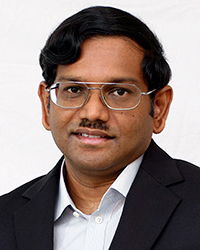
Mr Edward S. Robinson
Deputy Managing Director (Economic Policy) & Chief Economist, Monetary Authority of Singapore and Member of ABFER Council
Mr Edward S. Robinson has been with the MAS since 1992 and has been involved in macroeconometric modeling and is responsible for heading a team engaged in the continuing developmental work for the suite of MAS models, which are used for policy analysis. He has also been involved in other areas of economic policy work including in various inter-agency work groups which looked at the structural challenges facing the Singapore economy. He served on the Board of the Singapore Competition Commission between 2005 and 2007. He studied economics and applied econometrics at Monash University and the University of Melbourne.
-
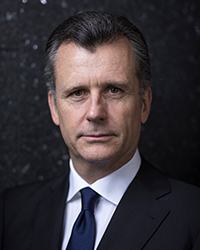
Dr Philipp Hildebrand
Vice Chairman, BlackRock
Philipp Hildebrand , Vice Chairman of BlackRock, is a member of the firm’s Global Executive Committee, with the BlackRock Investment Institute (BII), BlackRock Sustainable Investing (BSI) and Financial Markets Advisory (FMA) businesses reporting to him. Mr Hildebrand is responsible for driving Sustainable Investing across the Firm.
Mr. Hildebrand joined BlackRock in October 2012. Before coming to BlackRock, he served as Chairman of the Governing Board of the Swiss National Bank (SNB) until January 2012. In that capacity, he was also a Director of the Bank for International Settlements (BIS), the Swiss Governor of the International Monetary Fund (IMF) and a member of the Financial Stability Board (FSB), of which the Leaders of the G20 appointed him Vice Chairman in November 2011.
Previously, Mr. Hildebrand was Chief Investment Officer of a Swiss private bank and a partner of Moore Capital Management in London. Between 2006 and 2009, he served as a member of the Strategic Committee of the French Debt Management Office.
Mr. Hildebrand is a member of the Group of Thirty and an Honorary Fellow of Lincoln College, Oxford. He sits on the International Advisory Board of Oxford University’s Blavatnik School of Government and the International Leadership Council for Europe for the University of Toronto. He is a Chevalier de L’Ordre National du Mérite (France).
Mr. Hildebrand earned a BA from the University of Toronto, an MA from the Graduate Institute of International Studies in Geneva, and a DPhil from the University of Oxford. -

Professor Pierre-Olivier Gourinchas
Professor of Economics; S.K. and Angela Chan Professor of Global Management, Haas School of Business; Director, Clausen Center for International Business and Policy, Berkeley University, California
Pierre-Olivier Gourinchas grew up in Montpellier, France. He attended Ecole Polytechnique and received his PhD in Economics in 1996 from MIT. He taught at Stanford Graduate School of Business and Princeton University before joining UC Berkeley department of economics.
Professor Gourinchas' main research interests are in international macroeconomics and finance. His recent research focuses on the scarcity of global safe assets, global imbalances and currency wars (with Ricardo Caballero and Emmanuel Farhi); on the International Monetary System and the role of the U.S. dollar (with Hélène Rey); on the Dominant Currency Paradigm (with Gita Gopinath); on the determinants of capital flows to and from developing countries (with Olivier Jeanne); on international portfolios (with Nicolas Coeurdacier); and on the global financial crisis (with Maury Obstfeld). Professor Gourinchas is the laureate of the 2007 Bernàcer Prize for best European economist working in macroeconomics and finance under the age of 40, and of the 2008 Prix du Meilleur Jeune Economiste for best French economist under the age of 40. In 2012-2013, Professor Gourinchas was a member of the French Council of Economic Advisors to the Prime Minister. From 2009 to 2016 he was the editor-in-chief of the IMF Economic Review and from 2017 to 2019 the managing editor of the Journal of International Economics. He is currently co-editor of the American Economic Review and director of the NBER's International Finance and Macroeconomics Program. -
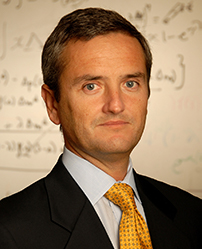
Professor Ricardo Caballero
Ford International Professor of Economics, Massachusetts Institute of Technology
Ricardo J. Caballero is the Ford International Professor of Economics, a director of the World Economic Laboratory at the Massachusetts Institute of Technology, and an NBER Research Associate. Caballero was the Chairman of MIT's Economics Department (2008-2011). His teaching and research fields are macroeconomics and finance.
Caballero has an extensive list of publications in all major academic journals. Among his major awards, he was the winner of the 2002 Frisch Medal of the Econometric Society for “Explaining Investment Dynamics in U.S. Manufacturing: A Generalized (S,s) Approach”, Econometrica, 67(4), July 1999 (joint work with Eduardo Engel); the Smith Breeden Prize by the American Finance Association for “Collective Risk Management in a Flight to Quality Episode”, Journal of Finance, 63(5), October 2008 (joint with Arvind Krishnamurthy), Journal of Finance 2014 Brattle Group Prize for distinguished papers for “Fire Sales in a Model of Complexity,” joint with Alp Simsek. In April 1998, Caballero was elected a Fellow of the Econometric Society and subsequently of the American Academy of Arts and Sciences in April 2010. -
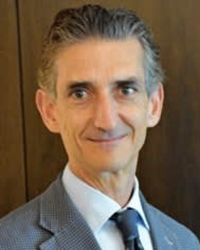
Dr Gian Maria Milesi-Ferretti
Deputy Director, Research Department, International Monetary Fund
Gian Maria Milesi-Ferretti is Deputy Director in the Research Department of the International Monetary Fund. He supervises the department’s work on multilateral surveillance, including the World Economic Outlook, G-20 reports, spillover analysis, and economic modeling. He was previously a Deputy Director in the Western Hemisphere Department and IMF mission chief to the United States.
He received his undergraduate degree in economics from Università di Roma La Sapienza in 1985 and his Ph.D. from Harvard in 1991. He joined the London School of Economics thereafter, and moved to the IMF in 1993. He has published extensively in refereed journals in the areas of international capital flows, international financial integration, current account sustainability, capital controls, taxation and growth, and political economy. His paper “The External Wealth of Nations Mark II” (joint with Philip Lane) won the Bhagwati award as best paper published in the Journal of International Economics during 2007-2008. Since 1996 he is a Research Fellow of the London-based Center for Economic Policy Research (CEPR). -
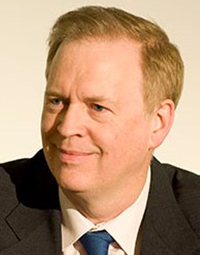
Professor Steven J. Davis
William H. Abbott Distinguished Service Professor of International Business and Economics, University of Chicago Booth School of Business, Exco Member & Senior Fellow of ABFER
Steven J. Davis studies business dynamics, employment, labor market institutions, economic fluctuations, public policy and other topics. He is a former editor of the American Economic Journal: Macroeconomics and an elected fellow of the Society of Labor Economists. He is also a research associate of the National Bureau of Economic Research, senior academic fellow with the Asian Bureau of Finance and Economics Research, advisor to the U.S. Congressional Budget Office, and visiting scholar and consultant, respectively, with the Federal Reserve Banks of Atlanta and Chicago.
Davis is known for his influential work using longitudinal data on firms and establishments to explore job creation and destruction dynamics and their relationship to economic performance. He is also a co-creator of the Economic Policy Uncertainty Indices and the DHI Hiring Indicators, and he co-organizes the Asian Monetary Policy Forum, held annually in Singapore. Davis has received research grants from the Alfred P. Sloan Foundation, Ewing Marion Kauffmann Foundation, John D. and Catherine T. MacArthur Foundation, and other organizations, including several grants from the U.S. National Science Foundation. In 2013, he received the Addington Prize in Measurement, awarded by the Fraser Institute for Public Policy, for his research on “Measuring Economic Policy Uncertainty.” His teaching experience includes Ph.D. courses in macroeconomics and labor economics at the University of Chicago, the Massachusetts Institute of Technology, and the University of Maryland; MBA courses in macroeconomics, money and banking, business strategy, and financial institutions for Chicago Booth; and executive MBA courses in macroeconomics for Chicago Booth in Barcelona, London, and Singapore. Davis has also taught undergraduate courses in microeconomics, econometrics, and money and banking at Brown University and the Massachusetts Institute of Technology. In addition to his scholarly publications, Davis has written for the Atlantic, Bloomberg View, Financial Times, Forbes, Wall Street Journal and other popular media and appeared on Channel News Asia, CNBC, CNN, Fox News, NBC Network News, and the U.S. Public Broadcasting System, among others. -
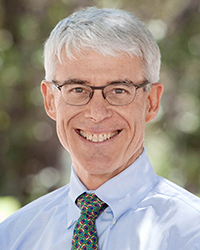
Professor Darrell Duffie
Dean Witter Distinguished Professor of Finance at the Graduate School of Business, and professor by courtesy, Department of Economics, Stanford University
Darrell Duffie is the Dean Witter Distinguished Professor of Finance at Stanford University's Graduate School of Business. He is also Professor (by courtesy) in the Department of Economics, Senior Fellow of the Stanford Institute for Economic Policy Institute, and Senior Fellow (by courtesy) of the Hoover Institution at Stanford University.
Duffie is a fellow of the Econometric Society, a research fellow of the National Bureau of Economic Research, and a fellow of the American Academy of Arts and Sciences and a Senior Fellow of Asian Bureau of Finance and Economic Research.
He was the 2009 president of the American Finance Association. From October 2008 to April 2018 Duffie was a member of the board of directors of Moody’s Corporation. From 2013 to 2017 he chaired the Financial Stability Board’s Market Participants Group on Reference Rate Reform.
Duffie’s research focuses on the design and regulation of capital markets. His research is published in Econometrica, Journal of Political Economy, and Journal of Finance, among other journals. His books include How Big Banks Fail (Princeton University Press, 2010), Measuring Corporate Default Risk (Oxford University Press, 2011), and Dark Markets (Princeton University Press, 2012). -
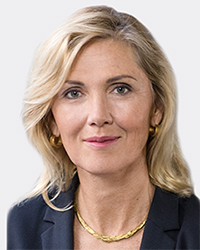
Professor Beatrice Weder di Mauro
President of Centre for Economic Policy Research (CEPR), Distinguished Fellow-in-residence, Emerging Markets Institute of INSEAD Singapore, Professor of Economics, Chair of Economic Policy and International Macroeconomics, University of Mainz, Germany
Beatrice Weder di Mauro was appointed as the President of CEPR in July 2018. The Centre's President has overall responsibility for CEPR's research programmes, policy outreach, funding and all researcher appointments. She works closely with the Centre's Research Director, Policy Director, Chief Executive Officer, Programme Directors, and CEPR staff to develop new initiatives and sustain existing activities.
Beatrice Weder di Mauro has held the Chair of Economic Policy and International Macroeconomics at the University of Mainz in Germany since 2001 and currently is Distinguished Fellow at the INSEAD Emerging Markets Institute. She has provided high-level policy advice to European governments, the European Commission, several international organizations and various central banks. For eight years she served on the German Council of Economic Experts, the highest advisory body for economic matters. She has been a member of strategic advisory groups for the Swiss and the Austrian governments, led research projects and acted as a consultant for the International Monetary Fund, the World Bank, the European Central Bank, the Deutsche Bundesbank and the OECD and the G20.
She started her academic career at the University of Basel and subsequently worked as economist in the European and the Fiscal Affairs department of the IMF. She held visiting positions at Harvard University, the National Bureau of Economic Research in Cambridge MA, the United Nations University in Tokyo and INSEAD in Singapore. She was named a “Young Global Leader” by the World Economic Forum in 2005 and later chaired the WEF Global Agenda Councils on Fiscal Crisis. She is currently a Senior Fellow of the Asian Bureau of Finance and Economic Research (ABFER) in Singapore and of the Center for International Governance Innovation (CIGI) in Toronto, a trustee of the ETH Foundation in Zurich and a member of the Bellagio Group. Weder di Mauro has served as independent director on the boards of globally leading companies in development finance, pharmaceuticals, technology and insurance. Currently she is a member of the board of Bombardier, Bosch and UBS Group.
Her research addresses policy related questions in international macroeconomics. She has published widely in academic journals, including the American Economic Review, Journal of International Economics, Brookings Papers on Economic Activity, Journal of Public Economics, Journal of Development Economics and Review of Finance. Recent publications have focused on reforms of the euro area, debt sustainability, cross-border banking regulation, financial integration and the global financial architecture. -
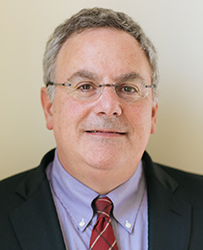
Professor Andrew Levin
Professor of Economics, Dartmouth College
Andrew Levin is a professor of economics at Dartmouth College. His research on monetary economics has been highly influential, with a citation count that ranks among the top 200 economists worldwide.
He received his Ph.D. in economics from Stanford University and worked at the Federal Reserve Board for two decades, including two years as a special adviser to the Chair and Vice Chair on monetary policy strategy and communications, and he was an adviser at the International Monetary Fund (IMF) prior to joining the Dartmouth faculty.
He has also been an external consultant to the European Central Bank, an adviser to the Bank of Korea, a visiting scholar at the IMF and at the central banks of Canada, Japan, and New Zealand, and he has provided technical assistance to the central banks of Albania, Argentina, Ghana, Macedonia, and Ukraine. Professor Levin currently serves as a scientific adviser to Norges Bank (the central bank of Norway).
- 1
Organizers

